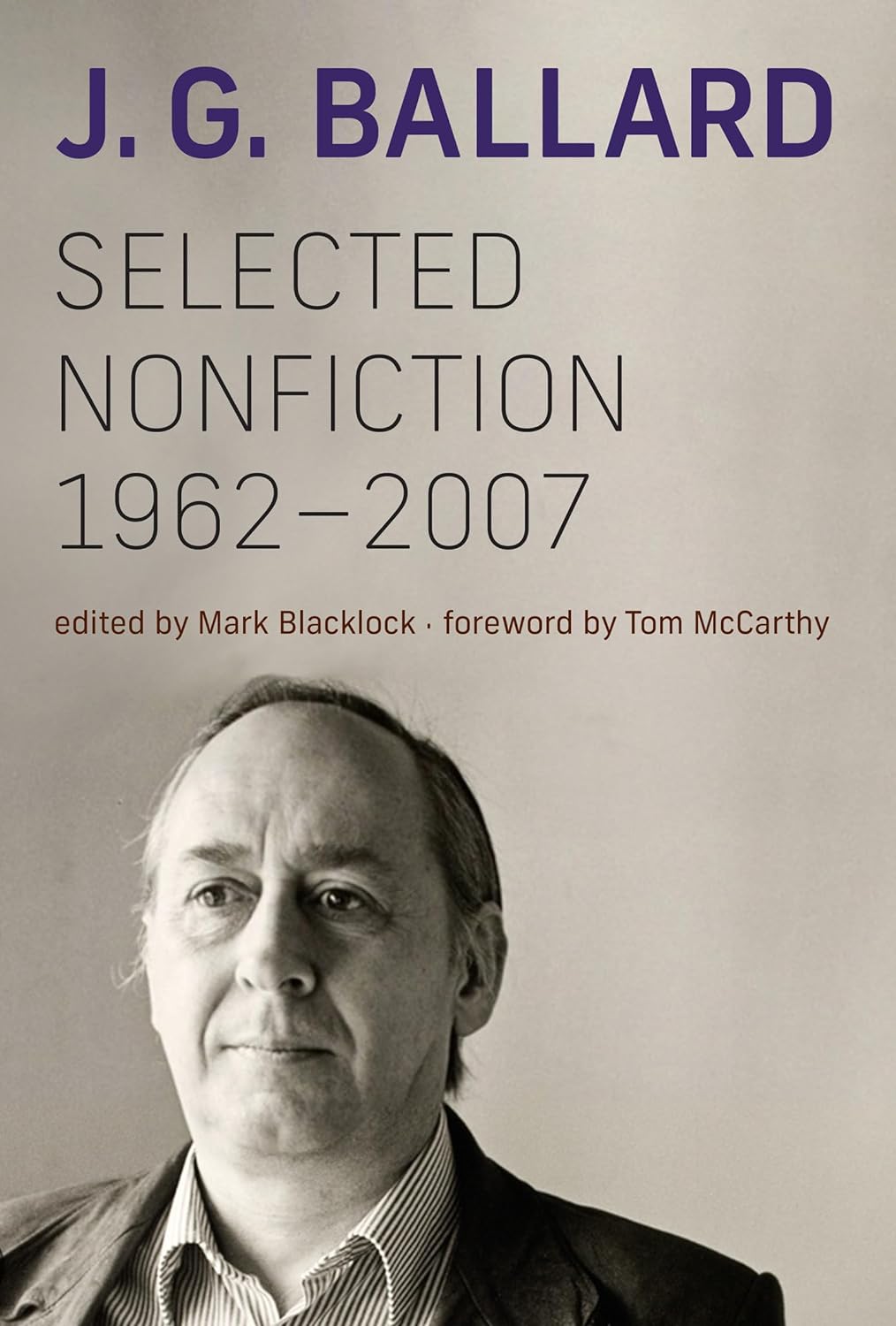A new collection of short-form nonfiction by the British writer brings to light texts that have until now disappeared from view

Across this collection of short-form nonfiction by the British master of speculative fiction is a recurring image of the teenage J.G. Ballard wandering the Shanghai–Nanking railway line at the end of the Second World War, after the Japanese have surrendered but before American or Chinese forces have arrived. Ballard, newly freed from the Shanghai prison camp in which he and his parents had been interned for several years, is left to his own devices, eyewitness to a liminal, ruined world of bombed airfields, gutted houses exposing staircases to nowhere, prison camps self-policed and reinforced to keep the starving masses out; a world in which Japanese soldiers, effectively already dead, the cities of their homeland flattened, await their fate. The young Ballard speaks with them, shares his water, trades an item of clothing as one soldier takes a break from casually hanging a Chinese civilian with telephone wire.
The writer was blessed, if that word can be used here, with a rich, early source of imagery and experiences that charged an aesthetic, a worldview, a literary career based on exploring civilisations collapsing, often calmly, under the weight of their ‘psychopathologies’, and what was left once those worlds had been washed away. But long before novels such as The Drowned World (1962), Crash (1973) and High-Rise (1975) established Ballard as the seer of twentieth-century dystopias ruled, as he writes, by the ‘great twin leitmotifs’ of ‘sex and paranoia’, he was a workaday journalist and assistant editor at trade magazines such as British Baker and Chemistry & Industry, churning out book reviews to support himself and his family while writing short stories he would soon begin selling to titles such as New Worlds and Science Fantasy. Throughout his life he would continue producing a wide variety of nonfiction writing ranging from short essays and position statements, cultural commentaries and magazine features, literary and film criticism, travelogues, introductions to foreign editions of his novels, lists, glossaries, indexes.
Though many of these writings have been collected previously (most significantly in A User’s Guide to the Millennium, 1996), the reasoning behind this collection, writes its editor, is to include texts that have disappeared from view due to the obscurity of their original publication or that were printed closer to the end of Ballard’s life. Those charged with selecting writings by a dead author have the advantage of shaping a collection to confirm that writer’s contemporary relevance. And Ballard is exceptionally prescient, capturing a world that didn’t yet fully exist or wasn’t visible to most but that today comes to us in waves of intrusive thoughts, from the distortions and alienations of social media, confusions of spectacle and reality, ‘media manipulators with presidential ambitions… and every intention of producing a thousand-year movie out of them’, drugs created to absolve corporations of responsibility for the damage they have wrought, desert rivieras and other climatologically disastrous masterplans, to name the most obvious.
The question then is do Ballard’s insights and visions paradoxically date this collection, in that so much of what he wrote speculatively is manifestly today’s reality (whatever that means), such that one struggles to distinguish between it and a once-outlandish-sounding Ballardian terrain in which people have to see themselves on TV to believe they are real, or to imagine a time when it wasn’t thus? It helps that the collection is introduced with a concise contextualising biography presenting the ‘derelict, dark and half-ruined’ Britain in which Ballard became a writer, and section paragraphs that tightly argue the evidence of Ballard’s continuing influence on culture. For the reader of Ballard’s short texts, polished and then elaborated on over the course of a lifetime, the reward is a sense of being engaged in conversation with a profound, sophisticated and witty companion who repeats himself at times, changes his stories a bit as he goes and trades in the totalising darkness of the human psyche.
J.G. Ballard: Selected Nonfiction 1962–2007, edited by Mark Blacklock. MIT, £30/$32.95 (hardcover)